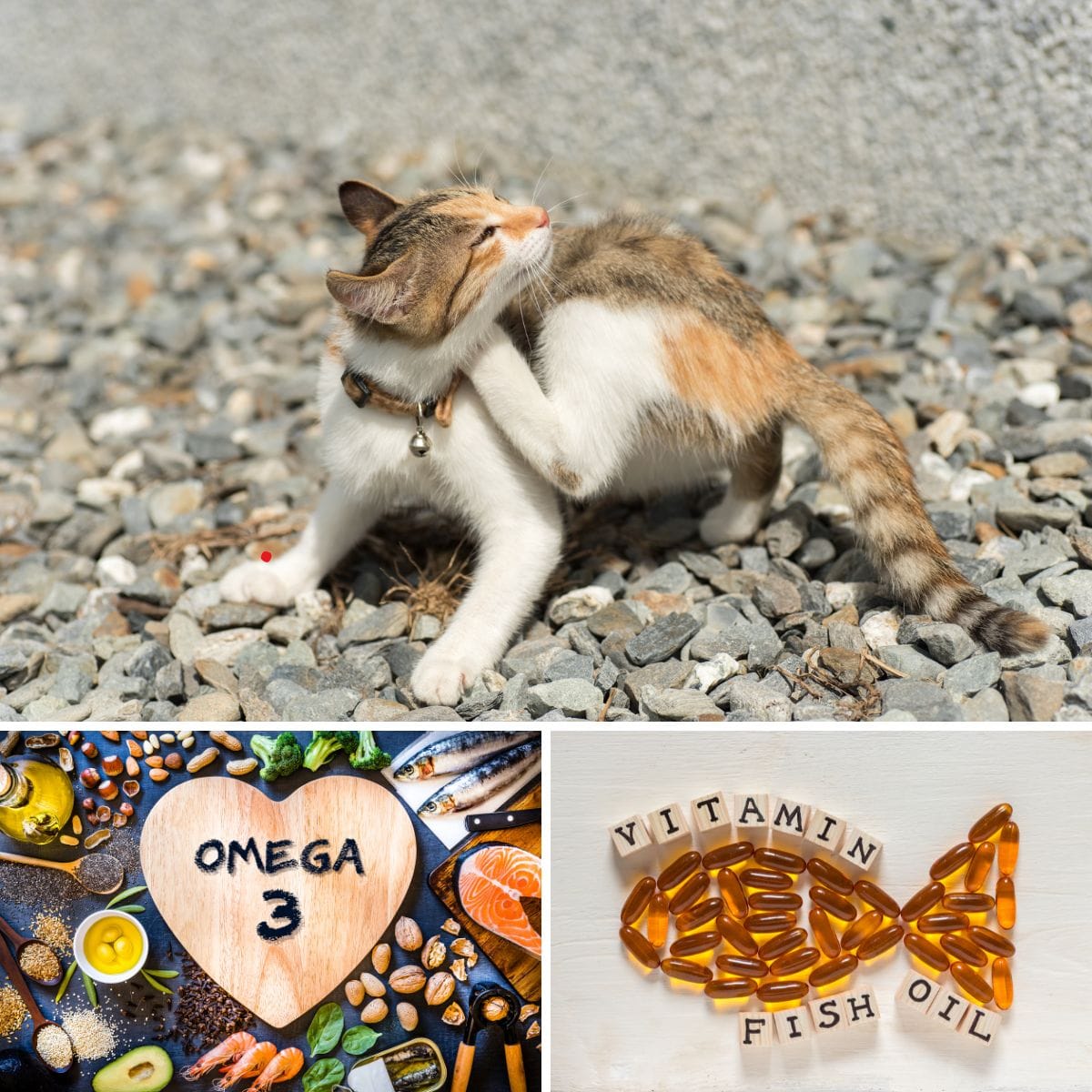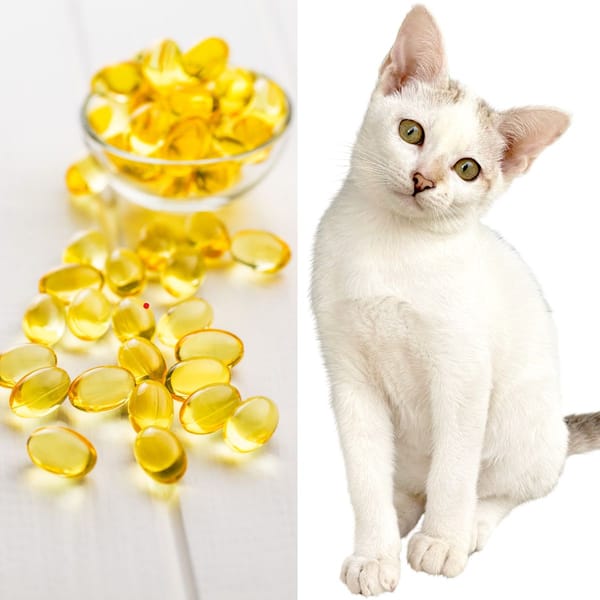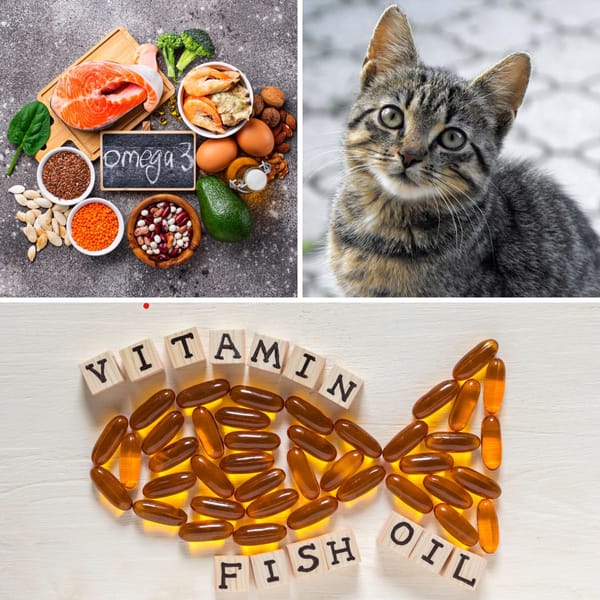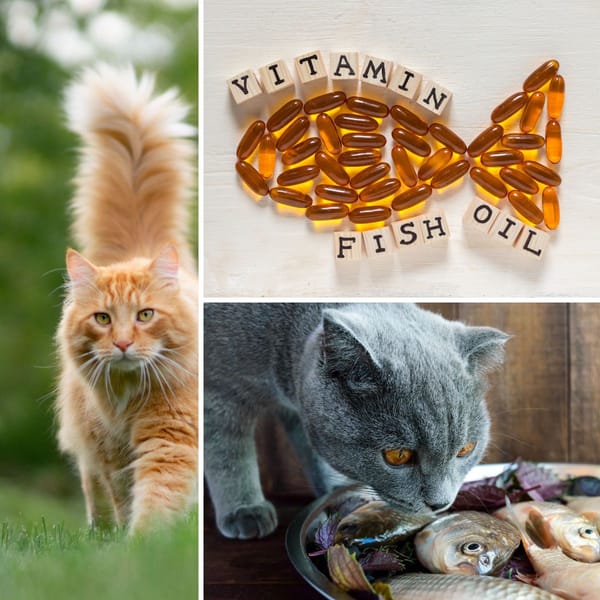Key Takeaways:
- Omega 3 fatty acids can alleviate itchy skin in cats by reducing inflammation.
- Incorporating omega 3 into a cat's diet can promote a shiny coat and overall health.
- Pet owners should choose high-quality omega-3 sources and consult with a vet for proper dosage.
Cats are not just pets; they're part of the family. And just like any family member, we want to ensure they're healthy and comfortable. Itchy skin in cats can be a sign of various issues, from food allergies to dry skin. As pet owners, we often hear about the wonders of omega 3 fatty acids for humans, but does omega 3 help cats with itchy skin? Let's dive into the details and find out.
Omega 3 Fatty Acids: The Good Stuff for Feline Skin
Omega 3 fatty acids, particularly eicosapentaenoic acid (EPA) and docosahexaenoic acid (DHA), are renowned for their anti-inflammatory properties. These fatty acids, found in fish oils like cod liver oil, can help reduce inflammation associated with itchy and flaky skin. For cats with sensitive skin, omega 3s can be a game-changer, soothing irritation and promoting a shiny coat.
The Science Behind Omega 3 and Itchy Skin in Cats
The anti-inflammatory effects of omega-3 fatty acids are not just hearsay; they're backed by science. These nutrients can help manage skin conditions by altering the production of inflammatory substances in the body. This means that for cats suffering from conditions like atopic dermatitis, omega-3 supplements could potentially reduce the itchiness and discomfort they experience.
Incorporating Omega 3 into Your Cat's Diet
When it comes to adding omega 3 to your cat's diet, there are several options. Fish oils, such as cod liver oil or omega-3 fish oils, are popular choices. However, it's crucial to ensure that these oils are free from heavy metals and other contaminants. Flaxseed oil, which contains alpha-linolenic acid, is another source, but cats have a limited ability to convert it to EPA and DHA.
Omega 3 Fish Oil: A Soothing Sea-Based Solution
Fish oil is like a soothing balm for our feline friends, especially when they're scratching up a storm. Rich in omega-3 fatty acids, this sea-based supplement is renowned for its anti-inflammatory properties, which can help calm the itchiness that drives our cats up the wall. It's not just about easing the scratch; these oils can also contribute to a lustrous coat that's as soft as a whisper, making cuddle time even more irresistible.
But it's not just any fish oil that does the trick. We're talking about high-quality sources that are rich in EPA and DHA, the dynamic duo of omega 3s. These components are key in managing skin conditions and promoting overall health. So, when you're perusing the pet aisle, keep an eye out for products that boast purity and sustainability, ensuring your kitty gets the cream of the crop without harming our ocean buddies.
A Tail of Two Diets: Dry Food vs. Omega-Enriched Nourishment
When it comes to your cat's diet, the difference between standard dry food and omega-enriched meals can be night and day for their skin health. Most dry foods, while convenient, can lack the essential fatty acids that keep skin supple and itch-free. This is where supplementing with omega-3s can make a world of difference. By adding a splash of fish oil or sprinkling some ground flaxseed (a plant-based source of alpha-linolenic acid) into their meals, you're giving their immune system a helping paw.
But let's not forget our canine companions; dogs and cats alike can benefit from a diet rich in omega 3s. Whether it's through specialized kibble or adding omega-3 fish oil to their food, these essential nutrients can help prevent dry, itchy skin and even more serious issues like irregular heart rhythms. It's a simple switch that can lead to a happier, healthier life for your four-legged family members, proving that a little omega can go a long way.
Dosage Matters: Finding the Right Balance
The benefits of omega-3 fatty acids are dose-dependent, meaning that the right amount needs to be administered for your cat to experience the potential benefits. This is where consulting with a veterinarian becomes essential. They can recommend the appropriate dosage based on your cat's body weight and overall health.
Not Just for Itchy Skin: Other Health Perks of Omega 3
Omega 3 fatty acids are not just good for combating itchy skin. They also contribute to heart health, cognitive function, and joint health. For older pets, omega 3s can help manage symptoms of cognitive dysfunction and reduce the risk of heart disease. Plus, they can alleviate joint pain, which is particularly beneficial for cats with arthritis.
Choosing the Right Omega 3 Supplement for Your Cat
With a plethora of omega-3 supplements on the market, it's important to pick the right one for your feline friend. Look for products specifically designed for pets, as these will be formulated to meet their unique needs. Avoid supplements for humans, as they may contain ingredients that are harmful to cats.
The Verdict on Omega 3 for Cats with Itchy Skin
So, does omega 3 help cats with itchy skin? The evidence suggests that it can. By incorporating the right omega-3 supplement into your cat's diet, you could see improvements in their skin condition, as well as their overall well-being. Remember, always consult with a vet before making any changes to your pet's diet or supplement regimen.
Summary
Omega 3 fatty acids have been shown to help cats with itchy skin due to their anti-inflammatory properties. These nutrients not only promote healthy skin and a shiny coat but also support heart health, cognitive function, and joint health. Pet owners should carefully select high-quality omega-3 supplements and consult with a veterinarian to determine the proper dosage for their cats.
FAQ Section
Q: Can I give my cat human omega-3 supplements? A: It's best to avoid human omega-3 supplements for cats, as they may contain ingredients that are not safe for them. Always choose supplements specifically designed for pets.
Q: How long does it take for omega 3 to improve my cat's itchy skin? A: The time frame can vary depending on the individual cat and the severity of their condition. Some cats may show improvement within a few weeks, while others may take longer. Consistency and following the vet's advice are key.
Q: Are there any side effects of giving omega 3 to cats? A: Omega 3 supplements are generally safe for cats when given in the correct dosage. However, too much can lead to side effects such as diarrhea or blood clotting issues. Always adhere to the vet-recommended dosage.







